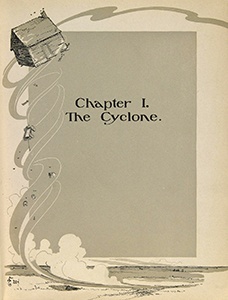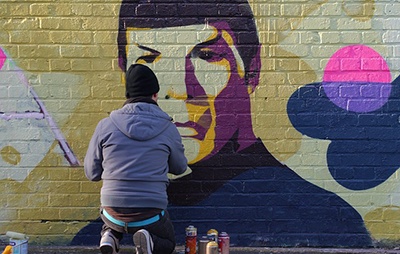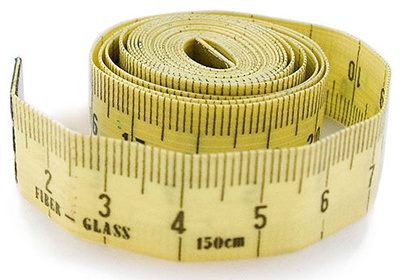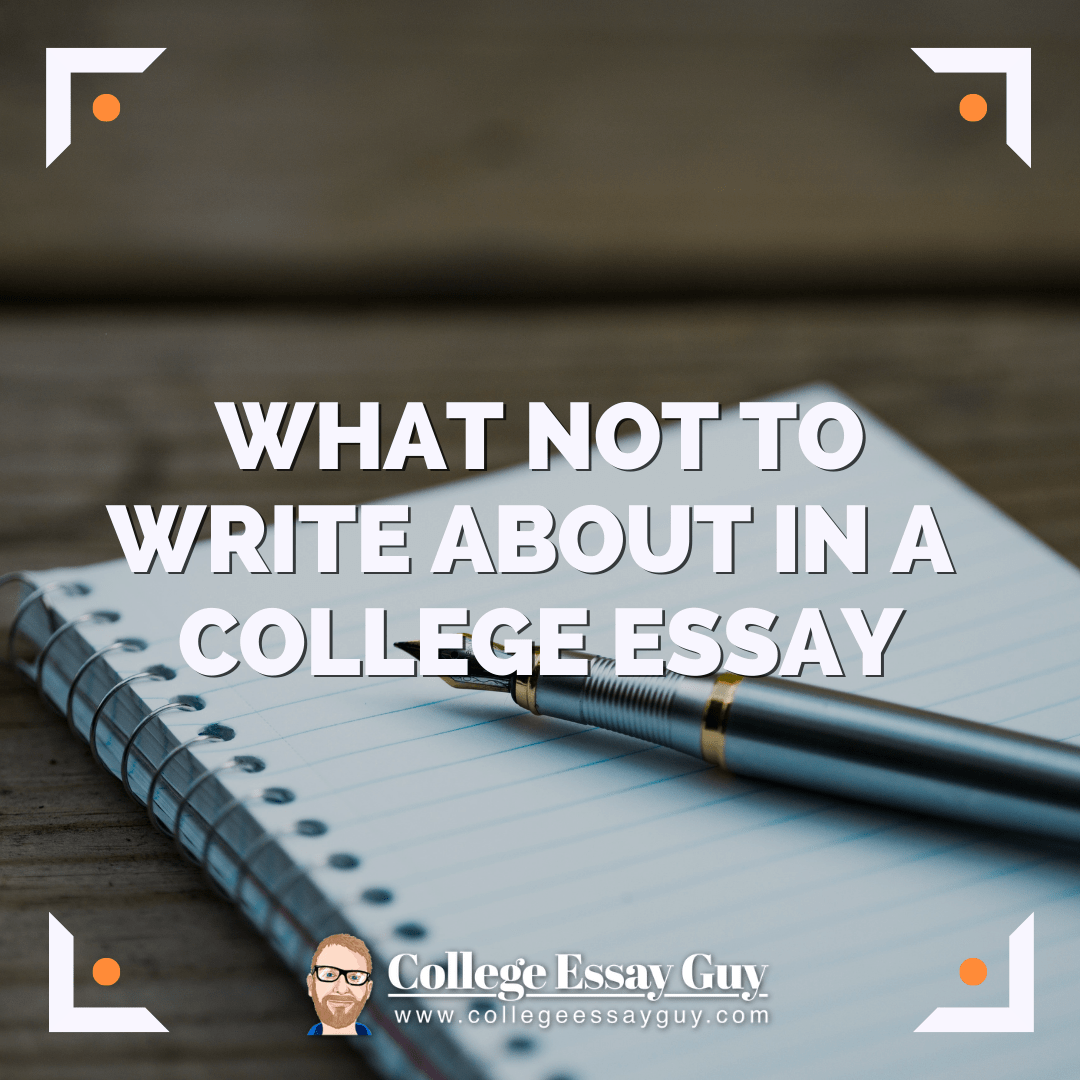
15 College Essay Topics To Avoid and Why | Tips & Examples

Reviewed by:
Former Admissions Committee Member, Columbia University
Reviewed: 4/26/24
Entrance essays are an integral part of your college application. Beyond your test scores, GPA, and other achievements, your essays are essentially the heart of your application. Essays help admissions committees get to know the person behind the stats.
While your essays showcase your adept writing skills , they also uncover your personality, voice, background, experiences, and more.
You can choose your essay topics when you apply through the Common Application, Coalition Application, or any other online application portal. However, there are some topics you should avoid, or at the very least, slightly steer your narrative in another direction.
Below we’ll walk you through why it’s best to avoid some topics in your college entrance essays and a brief overview of some common topics to steer clear of or adjust the trajectory.
Why Should You Avoid Certain Topics for College Entrance Essays?
Your college entrance essay is your chance to make a lasting impression on admissions officers. It's a way to reveal who you are as a person, separate from your grades and test scores. But some topics can backfire, hindering your application instead of highlighting your strengths. Starting an essay topic right can be your ticket into your desired school.
Adam Sapp , Assistant Vice President and Director of Admissions at Pomona College, said, “The essays are important in part because this is a student's chance to really speak directly to the admissions office.”
What Do Colleges Look For in College Essays?
When it comes to college essays, colleges are on the hunt for a few key things. They want to get to know you beyond just your grades and test scores, so your essay is your chance to shine. Here's what they're generally looking for:
- Your Personality : Colleges want to see your personality come through in your essay. They want to know what makes you tick, what you're passionate about, and what kind of person you are. This is your chance to let your individuality shine.
- Writing Skills : Of course, colleges also want to see that you can write well. They'll be looking at your grammar, punctuation, and overall writing style. So, make sure your essay is well-structured and free of errors.
- Your Story : Everyone has a unique story to tell, and colleges are interested in yours. They want to know about your experiences, the challenges you've faced, and how you've grown as a result. Share something personal and meaningful.
- Why You're a Good Fit : Colleges also want to see that you've done your homework. They want to know why you're interested in their school specifically. What do you like about their programs, campus, or culture that makes you a good fit?
- Thoughtfulness : Your essay should show that you've put thought into your future and your academic goals. They want to see that you're serious about your education and have a clear sense of purpose.
- Creativity : While you want to be thoughtful and serious, don't be afraid to be creative and unique in your writing. A fresh perspective can make your essay stand out.
- Impact and Growth : Colleges love to see how you've made an impact in your community or how you've grown through your experiences. Share any leadership roles, volunteer work, or challenges you've overcome.
- Adherence to Guidelines : Finally, make sure your essay follows the specific guidelines provided by the college. Don't go over the word limit or ignore any prompts they've given.
Overall, colleges are looking for an authentic, well-written essay that gives them insight into who you are as a person, why you're interested in their school, and how you can contribute to their community. So, be yourself, put some thought into it, and don't forget to proofread!
15 Topics to Avoid in Your College Essays

The perfect college essay demonstrates your growth, character, and fit with the school. To drive the point home, choose an essay topic that has proven results . Before you start brainstorming, know there are many college essay topics to avoid altogether.
Some college essay topics are cliche, and some are risky, uncreative, or just downright inappropriate. We’ll talk you through all the topics to avoid in college essays.
1. Inappropriate Topics
Some people think rolling with an inappropriate topic and shocking the admissions committee is a great idea, but it’s not. Stay far, far away from anything to do with illegal activity, alcohol, substance use, and anything else following these themes.
You don’t set yourself up for success using topics like these. The admissions committee could cast judgment, and you’re certainly not putting your best foot forward.
The only time something like this may be appropriate is if you volunteered at a needle exchange or harm reduction facility. Even then, you’d want to delve into the topic with tact and grace or consider choosing another topic altogether.
Why Is This A Bad Topic For a College Essay?
Inappropriate topics like these are ill-advised because they can portray the applicant in an extremely negative light to admissions officers. Writing about illegal activities or substance abuse raises major red flags about the applicant's judgment and ability to make good choices. The admissions committee will likely view such topics as a lack of maturity and responsibility - qualities that are essential for college students.
2. A Rehash of Your Activities List and Transcripts
Essentially summarizing your achievements won’t make for a compelling narrative. The admissions committee already has access to your activities list and transcripts, so there’s no need to reiterate all of the items you wrote down.
Summarizing these documents is a mistake because it won’t add anything else to your application. Remember, you want to tell the admissions committee something they don’t already know.
If you want to write about a specific extracurricular, get close and personal with just one. Select the most meaningful activity or the one you were most passionate about and delve beyond the surface. Focusing on one activity can make for a successful essay if it shows your growth, positive character traits, or personality.
Rehashing information from other parts of the application is a wasted opportunity for the personal essay. The essay is meant to provide new insights into the applicant's personality, values, and experiences that transcripts and lists cannot convey. Simply recapping accomplishments fails to reveal anything meaningful about the applicant as an individual.
3. Relationships, Romance, and Breakups
As much as you may be head over heels for your partner, or scraping the bottom of ice cream tubs after a breakup, don’t turn these experiences into essay topics. It sounds a little harsh, but your love life doesn’t matter to the admissions committee. Besides that, love is a gigantic and complex topic not well-suited to a college application essay.
The other problem with this topic is it takes the focus off of yourself and onto another person. You want to ensure your essay is all about you . That's the person most important to the admissions committee, so put yourself first.
Romance and relationship drama makes for poor college essay topics because they are too personal and not relevant to the applicant's qualifications for admission. Admissions officers are focused on evaluating the applicant's academic potential, not their romantic endeavors. Essays on this topic come across as immature and could raise doubts about the applicant's ability to prioritize their studies over their love life.
4. Writing About Your Hero
Writing a story about your hero sounds nice in theory. However, it’s a cliche college essay topic to avoid. Like writing about your sweetheart (or ex-sweetheart), writing about your hero takes the spotlight away from you and directs it to someone who isn’t applying to college.
If you wanted to write about your hero in the first place, why? What did they inspire in you, or what experiences did you go through together? How did those experiences or “a-ha” moments make you a better person or a better candidate? Cut through the fluff and focus the lens back on yourself.
The problem with writing about a hero is that the essay becomes more about glorifying someone else rather than providing insights into the applicant's own life experiences, growth, and motivations. Admissions committees want to learn about the applicants themselves, not read an ode to someone else's accomplishments. The personal statement should maintain a strong focus on the applicant as an individual.
5. The Sports Story
Ah yes, the classic sports story. These essays typically follow different plots. Maybe you scored a point in the last moment, or your team won a championship game against all odds, or you wanted to showcase your training regimen.
Most people will tell you to stay away from sports topics altogether. If you are dead-set on writing about your sports experiences, don’t let your essay fall into cliche and predictable patterns.
Approach your sports story from a creative and new angle. Ask yourself the following questions:
- How did the skills you learned from sports impact another experience?
- Did being team captain give you the leadership skills you needed to succeed in leading an unrelated project?
Think critically about your experiences, and you could have a stellar essay topic on your hands to start writing .
Laura Stratton , Director of Admission at Scripps College in California, recounts an exceptionally well-written sports essay about a student benched in a final game.
“The self-awareness the student showed of being a good team member and showing up for her teammates, and continuing to be positive even though it wasn't the personal experience that she wanted to have, said a lot about her character and about the type of roommate she would be or classmate she would be.”
Always look for a fresh angle in your sports story if it’s the one you want to tell.
Sports stories are often cautioned against because they tend to be cliché and unoriginal. There are only so many ways to rehash the "big game" narrative before it becomes stale and uncompelling. Unless the applicant has a truly unique angle, a sports essay runs the risk of blending in with other applications and failing to make a memorable impression on admissions officers.
6. Tragedies
While tragedies you’ve faced can be formative experiences, this may be a college application essay topic to avoid. Some people aren’t comfortable sharing the intimate details of a tragedy they’ve faced, and that’s okay. Similarly, some people aren’t comfortable reading about the personal details of someone else’s tragedy.
However, if a tragic event such as the death of a loved one is imperative to your narrative, you can carefully craft a story including it. How was the tragedy an index event that impacted your thoughts or actions?
Tragic events require an extremely delicate approach in college essays. There is the risk of either oversharing disturbing details that make readers uncomfortable, or glossing over the tragedy too briefly to give it proper context.
Admissions officers may also worry that an applicant who has experienced major trauma is not in a good mindset for the rigors of college life. Overall, tragedies are very personal topics better avoided unless absolutely essential to the narrative.
7. Highly Personal Topics
Like tragic events, highly personal topics don’t always make the best essays . Examples of highly personal topics include past trauma, severe illnesses, and injuries. To fully explore the details of their stories, writers may get too graphic or go into way too much detail about these situations.
If a highly personal topic is central to the story you want to tell, ensure you handle your narrative delicately. It’s okay to briefly share these anecdotes as long as you don’t go into way too much personal detail.
Similar to tragic events, highly personal topics involving trauma, health issues, or other very private matters should be avoided unless directly relevant to the main narrative. Oversharing disturbing or graphic personal details can make readers uncomfortable and detract from the overall essay.
8. Controversial Topics: Politics, Religion, and More
Controversial topics are typically college essay topics to avoid. The problem with these is that not everyone will share the same views, and you may open yourself up to judgment from the admissions committee members who don’t.
Of course, admissions committees don’t make decisions based on criteria such as what political party you voted for or whether or not you attend a place of worship consistently. These topics work against you. Instead of showing why you’re the right candidate, writing about politics and religion can feel like you’re trying to convince the committee your views are correct.
The only time you may want to write about a polarizing topic like religion is if you plan to attend a school where religion is a part of its heritage, founding, and teaching, such as Notre Dame University.
Touching on controversial topics like politics or religion is inadvisable because it injects personal opinions and beliefs that may not align with the admissions officer reading the essay. This creates the potential for bias and judgment based on the applicant's stance on the issue.
The personal statement should aim to unite readers around the applicant's strengths, not divide them over polarizing debates.
9. The Confessional
If you want to craft a narrative about an obstacle you’ve faced or to share your growth throughout your high school years, avoid “the confessional.”
You may feel guilty about something you’ve done that no one else knows about: it’s probably best not to share these confessions with the admissions committee. Your confessional probably won’t paint you in the light you were hoping for.
Instead, focus on an experience where something or someone changed your perspective or how you navigated a challenging situation in the best way you could. These anecdotes show growth, adaptability, and the willingness to change your perspective when offered new information.
Confessional-style essays delving into past mistakes, guilt, or skeletons in the closet are cautioned against because they can very easily misfire. What the applicant intends as a narrative of growth may come across as a laundry list of poor choices and immaturity. Admissions officers want to see the present, best version of the applicant, not dwell on their past missteps.
10. Throwing the Box Away
It’s one thing to think outside the box, it’s another to throw the box out entirely and send it downriver. Sometimes students think an ultra-creative essay means going for an entirely new format, like writing a song or poem. While it might be more fun, it could put you at a disadvantage.
Being creative doesn't mean you have to reinvent the wheel with your essay. It means you can describe an anecdote or situation using detailed description and vibrant imagery. Pour your creativity into your word choice and how you set up a scene, and it’s sure to strike a much better chord with the admissions committee than a poem or song would (pun intended).
While creative writing is encouraged, completely disregarding traditional essay formatting and structure can be a gamble. Admissions officers have to read thousands of personal statements, so presenting the information in an unconventional way like a poem or song may just come across as gimmicky. It's better to channel creativity into excellent writing within the bounds of a standard essay format.
11. The Service/Mission/Class Trip
One of the problems with these essay topics is that everyone who has had the opportunity to participate in one of these trips wants to write about them. The second problem is that these narratives tend to follow similar themes and that students tend to write about the trip as a whole.
If your heart is set on sharing an experience from a trip, pick one meaningful moment to focus on. Did you meet someone on your trip that impacted your character or beliefs? Did you face an unexpected challenge that made you need to rise to the occasion?
Whitney Soule , Senior Vice President and Dean of Admissions and Student Aid at Bowdoin College, said, “Overuse of a topic doesn’t make it a bad topic.” Remember, honing in on one element of your trip can help differentiate your essay and show more depth than just glazing over your excursion.
Service trips, mission trips, or class trips are very common sources for college essays, which makes standing out difficult. Simply recounting the trip itself in a play-by-play fashion is unoriginal and doesn't reveal much about the applicant's unique perspective or growth. To make this topic work, the applicant needs to go beyond just describing the trip and pinpoint specific moments or interactions that were transformative.
12. Something That Happened Way Before High School
Many of our most formative experiences can happen long before reaching high school. While these moments are important to you, writing about something that happened to you way before high school may not make the best admissions essay. Your experiences before high school don’t show the admissions committee who you are right now; they show who you were before.
If you want to pick out a story about your childhood, ensure you relate it to high school or current events. This way, you get to tell that story, but you make it relevant to the person you are today.
For example, if both your parents are scientists and you used to put on their lab coats at five years old, relate it to how your love of science grew over time to lead you to your school choices now. Don’t just stick to the first part of the story.
While childhood experiences shape who we become, dwelling too much on events from the distant past can make the essay feel irrelevant to the present-day applicant. Admissions officers want to get a sense of the applicant's current identity, maturity, and mindset - not the person they were as a young child.
13. Your Privilege or Luck
If you’ve lived a privileged life or you’ve had stroke after stroke of good luck, focusing only on these elements isn’t in your best interest. It can come across like you haven't experienced any challenges or have a skewed vision of how the world works.
It’s fortunate if you’ve lived a reasonably trouble-free life thus far. However, dig deep and look for something beyond the surface of sunshine and rainbows—admissions committees like some vulnerability and honesty.
Essays that are overtly privileged or present a life of constant good fortune can come across as out-of-touch or lacking perspective. Admissions officers want to see that applicants have dealt with obstacles, learned from setbacks, and developed resilience.
An essay that reads as completely devoid of any challenges or hardships may raise questions about the applicant's ability to cope with future difficulties in college.
14. Anything That Involves Lying
You would think this one is obvious, but many people feel like their stories just aren’t good enough to tell, so they fabricate elements. The bottom line is you should never lie about anything in your college admissions essays . Admissions committees can smell insincerity. That’s not a personal quality you want to communicate to them.
Rest assured that you don’t need to have written a dramatic story filled with twists and turns. Excellent college essays can revolve around mundane topics. Write your truth, and don’t fudge any of the details.
Lying or embellishing details in a college essay is a surefire way to undermine the entire application. If caught, it demonstrates a serious lack of integrity that will disqualify the applicant.
Even if the lie slips through, the essay will likely come across as inauthentic. Admissions officers can usually spot when an applicant is exaggerating or fabricating stories. Honesty is always the best policy for personal statements.
15. Risky Topics Like Pointing Out a School’s Shortcomings
This type of writing is uncommon for a reason: it won’t work. Some students may think pointing out a school’s shortcomings and how their attendance may help bridge them will give their essay the shock factor they need to stand out.
Unfortunately, you’ll stand out in the wrong way. As a general rule, you probably shouldn’t rip apart the school you want to attend.
A better option is to describe how your acceptance will add to the school and campus culture. A response like this may be better suited to a “Why this school?” supplementary essay, but schools want to admit students who contribute to its culture and add a unique perspective to classrooms.
Criticizing or calling out perceived flaws in the school is an extremely risky move that is very unlikely to pay off. It comes across as arrogant and presumptuous for an applicant to claim they can single-handedly fix an institution's issues before even being admitted.
This tactic shows a lack of respect for the school and its existing community. Applicants are much better off highlighting their strengths as an additive force.
How To Write a Cliche College Essay That Works? (If You Really Want To)
While certain topics like inappropriate content, rehashing accomplishments, sports stories, and personal topics are generally cautioned against for college essays, there are ways to approach them thoughtfully if you insist on using them.
The key is to find a unique angle that shows personal growth, adaptability, vulnerability, or how the experience shaped you as an individual.
Rather than just recounting events, analyze how a relationship taught you empathy, how a tragedy changed your perspective, or how being a team captain demonstrated leadership.
Handle sensitive topics delicately without oversharing graphic details. Above all, ensure your narrative maintains an inward focus on your own insights, strengths, and fit for the university rather than distracting from your candidacy.
With creativity and self-awareness, even cliched topics can make compelling essays that showcase who you are.
Check out our College Essay Examples Database for a detailed look at successful essays.
Do you still have questions about college application essays? We've got answers! Check out this FAQ section to find the information you need to ace your application.
1. Are There Any Sensitive Personal Experiences I Should Avoid Discussing in My Essay?
Avoid overly sensitive topics that might be uncomfortable for admissions officers. Instead, choose experiences that demonstrate personal growth and resilience.
2. Are There Any Topics That Might Come Across as Boastful or Arrogant in a College Essay?
Avoid bragging about achievements or sounding self-important. Focus on how experiences shaped your character and values.
3. How Can I Identify Potentially Overdone or Unoriginal Essay Topics?
Think about common themes like sports victories or mission trips. To stand out, find a unique angle or a more personal way to approach these topics.
4. What Are Considered Cliché Topics in College Application Essays?
Cliché topics include sports victories ("the big game"), mission/volunteer trips, and overcoming a generic obstacle. Seek a fresh perspective to make these experiences more impactful.
5. Should I Avoid Discussing Controversial Political or Religious Beliefs in My College Essay?
Yes. It's generally best to avoid divisive topics. Focus on sharing experiences that highlight your values, problem-solving skills, and open-mindedness.
Final Thoughts
There are many cliche essay topics to avoid and some inappropriate to share with admissions committees. Your college admissions essays should always carry a professional yet conversational tone, and you shouldn’t write about anything that would be detrimental to your application.
Even though the above list is filled with topics to avoid in college essays, it doesn’t mean you can’t tweak them to make them more appropriate and a better story to tell. Your writing should authentically show your voice and character. Put your best foot (and best writing) forward, and you’re sure to produce stellar pieces of writing!
Get A Free Consultation
You may also like.

Should You Join DECA in High School?

How to Write the Princeton Supplemental Essays - Examples


Choose Your Test
- Search Blogs By Category
- College Admissions
- AP and IB Exams
- GPA and Coursework
Bad College Essays: 10 Mistakes You Must Avoid
College Essays

Just as there are noteworthy examples of excellent college essays that admissions offices like to publish, so are there cringe-worthy examples of terrible college essays that end up being described by anonymous admissions officers on Reddit discussion boards.
While I won't guarantee that your essay will end up in the first category, I will say that you follow my advice in this article, your essay most assuredly won't end up in the second. How do you avoid writing a bad admissions essay? Read on to find out what makes an essay bad and to learn which college essay topics to avoid. I'll also explain how to recognize bad college essays—and what to do to if you end up creating one by accident.

What Makes Bad College Essays Bad
What exactly happens to turn a college essay terrible? Just as great personal statements combine an unexpected topic with superb execution, flawed personal statements compound problematic subject matter with poor execution.
Problems With the Topic
The primary way to screw up a college essay is to flub what the essay is about or how you've decided to discuss a particular experience. Badly chosen essay content can easily create an essay that is off-putting in one of a number of ways I'll discuss in the next section.
The essay is the place to let the admissions office of your target college get to know your personality, character, and the talents and skills that aren't on your transcript. So if you start with a terrible topic, not only will you end up with a bad essay, but you risk ruining the good impression that the rest of your application makes.
Some bad topics show admissions officers that you don't have a good sense of judgment or maturity , which is a problem since they are building a class of college students who have to be able to handle independent life on campus.
Other bad topics suggest that you are a boring person , or someone who doesn't process your experience in a colorful or lively way, which is a problem since colleges want to create a dynamic and engaged cohort of students.
Still other bad topics indicate that you're unaware of or disconnected from the outside world and focused only on yourself , which is a problem since part of the point of college is to engage with new people and new ideas, and admissions officers are looking for people who can do that.
Problems With the Execution
Sometimes, even if the experiences you discuss could be the foundation of a great personal statement, the way you've structured and put together your essay sends up warning flags. This is because the admissions essay is also a place to show the admissions team the maturity and clarity of your writing style.
One way to get this part wrong is to exhibit very faulty writing mechanics , like unclear syntax or incorrectly used punctuation. This is a problem since college-ready writing is one of the things that's expected from a high school graduate.
Another way to mess this up is to ignore prompt instructions either for creative or careless reasons. This can show admissions officers that you're either someone who simply blows off directions and instructions or someone who can't understand how to follow them . Neither is a good thing, since they are looking for people who are open to receiving new information from professors and not just deciding they know everything already.

College Essay Topics To Avoid
Want to know why you're often advised to write about something mundane and everyday for your college essay? That's because the more out-there your topic, the more likely it is to stumble into one of these trouble categories.
Too Personal
The problem with the overly personal essay topic is that revealing something very private can show that you don't really understand boundaries . And knowing where appropriate boundaries are will be key for living on your own with a bunch of people not related to you.
Unfortunately, stumbling into the TMI zone of essay topics is more common than you think. One quick test for checking your privacy-breaking level: if it's not something you'd tell a friendly stranger sitting next to you on the plane, maybe don't tell it to the admissions office.
- Describing losing your virginity, or anything about your sex life really. This doesn't mean you can't write about your sexual orientation—just leave out the actual physical act.
- Writing in too much detail about your illness, disability, any other bodily functions. Detailed meaningful discussion of what this physical condition has meant to you and your life is a great thing to write about. But stay away from body horror and graphic descriptions that are simply there for gratuitous shock value.
- Waxing poetic about your love for your significant other. Your relationship is adorable to the people currently involved in it, but those who don't know you aren't invested in this aspect of your life.
- Confessing to odd and unusual desires of the sexual or illegal variety. Your obsession with cultivating cacti is wonderful topic, while your obsession with researching explosives is a terrible one.

Too Revealing of Bad Judgment
Generally speaking, leave past illegal or immoral actions out of your essay . It's simply a bad idea to give admissions officers ammunition to dislike you.
Some exceptions might be if you did something in a very, very different mindset from the one you're in now (in the midst of escaping from danger, under severe coercion, or when you were very young, for example). Or if your essay is about explaining how you've turned over a new leaf and you have the transcript to back you up.
- Writing about committing crime as something fun or exciting. Unless it's on your permanent record, and you'd like a chance to explain how you've learned your lesson and changed, don't put this in your essay.
- Describing drug use or the experience of being drunk or high. Even if you're in a state where some recreational drugs are legal, you're a high school student. Your only exposure to mind-altering substances should be caffeine.
- Making up fictional stories about yourself as though they are true. You're unlikely to be a good enough fantasist to pull this off, and there's no reason to roll the dice on being discovered to be a liar.
- Detailing your personality flaws. Unless you have a great story of coping with one of these, leave deal-breakers like pathological narcissism out of your personal statement.

Too Overconfident
While it's great to have faith in your abilities, no one likes a relentless show-off. No matter how magnificent your accomplishments, if you decide to focus your essay on them, it's better to describe a setback or a moment of doubt rather that simply praising yourself to the skies.
- Bragging and making yourself the flawless hero of your essay. This goes double if you're writing about not particularly exciting achievements like scoring the winning goal or getting the lead in the play.
- Having no awareness of the actual scope of your accomplishments. It's lovely that you take time to help others, but volunteer-tutoring a couple of hours a week doesn't make you a saintly figure.

Too Clichéd or Boring
Remember your reader. In this case, you're trying to make yourself memorable to an admissions officer who has been reading thousands of other essays . If your essay makes the mistake of being boring or trite, it just won't register in that person's mind as anything worth paying attention to.
- Transcribing your resume into sentence form or writing about the main activity on your transcript. The application already includes your resume, or a detailed list of your various activities. Unless the prompt specifically asks you to write about your main activity, the essay needs to be about a facet of your interests and personality that doesn't come through the other parts of the application.
- Writing about sports. Every athlete tries to write this essay. Unless you have a completely off-the-wall story or unusual achievement, leave this overdone topic be.
- Being moved by your community service trip to a third-world country. Were you were impressed at how happy the people seemed despite being poor? Did you learn a valuable lesson about how privileged you are? Unfortunately, so has every other teenager who traveled on one of these trips. Writing about this tends to simultaneously make you sound unempathetic, clueless about the world, way over-privileged, and condescending. Unless you have a highly specific, totally unusual story to tell, don't do it.
- Reacting with sadness to a sad, but very common experience. Unfortunately, many of the hard, formative events in your life are fairly universal. So, if you're going to write about death or divorce, make sure to focus on how you dealt with this event, so the essay is something only you could possibly have written. Only detailed, idiosyncratic description can save this topic.
- Going meta. Don't write about the fact that you're writing the essay as we speak, and now the reader is reading it, and look, the essay is right here in the reader's hand. It's a technique that seems clever, but has already been done many times in many different ways.
- Offering your ideas on how to fix the world. This is especially true if your solution is an easy fix, if only everyone would just listen to you. Trust me, there's just no way you are being realistically appreciative of the level of complexity inherent in the problem you're describing.
- Starting with a famous quotation. There usually is no need to shore up your own words by bringing in someone else's. Of course, if you are writing about a particular phrase that you've adopted as a life motto, feel free to include it. But even then, having it be the first line in your essay feels like you're handing the keys over to that author and asking them to drive.
- Using an everyday object as a metaphor for your life/personality. "Shoes. They are like this, and like that, and people love them for all of these reasons. And guess what? They are just like me."

Too Off-Topic
Unlike the essays you've been writing in school where the idea is to analyze something outside of yourself, the main subject of your college essay should be you, your background, your makeup, and your future . Writing about someone or something else might well make a great essay, but not for this context.
- Paying tribute to someone very important to you. Everyone would love to meet your grandma, but this isn't the time to focus on her amazing coming of age story. If you do want to talk about a person who is important to your life, dwell on the ways you've been impacted by them, and how you will incorporate this impact into your future.
- Documenting how well other people do things, say things, are active, while you remain passive and inactive in the essay. Being in the orbit of someone else's important lab work, or complex stage production, or meaningful political activism is a fantastic learning moment. But if you decide to write about, your essay should be about your learning and how you've been influenced, not about the other person's achievements.
- Concentrating on a work of art that deeply moved you. Watch out for the pitfall of writing an analytical essay about that work, and not at all about your reaction to it or how you've been affected since. Check out our explanation of how to answer Topic D of the ApplyTexas application to get some advice on writing about someone else's work while making sure your essay still points back at you.

(Image: Pieter Christoffel Wonder [Public domain] , via Wikimedia Commons)

Too Offensive
With this potential mistake, you run the risk of showing a lack of self-awareness or the ability to be open to new ideas . Remember, no reader wants to be lectured at. If that's what your essay does, you are demonstrating an inability to communicate successfully with others.
Also, remember that no college is eager to admit someone who is too close-minded to benefit from being taught by others. A long, one-sided essay about a hot-button issue will suggest that you are exactly that.
- Ranting at length about political, religious, or other contentious topics. You simply don't know where the admissions officer who reads your essay stands on any of these issues. It's better to avoid upsetting or angering that person.
- Writing a one-sided diatribe about guns, abortion, the death penalty, immigration, or anything else in the news. Even if you can marshal facts in your argument, this essay is simply the wrong place to take a narrow, unempathetic side in an ongoing debate.
- Mentioning anything negative about the school you're applying to. Again, your reader is someone who works there and presumably is proud of the place. This is not the time to question the admissions officer's opinions or life choices.

College Essay Execution Problems To Avoid
Bad college essays aren't only caused by bad topics. Sometimes, even if you're writing about an interesting, relevant topic, you can still seem immature or unready for college life because of the way you present that topic—the way you actually write your personal statement. Check to make sure you haven't made any of the common mistakes on this list.
Tone-Deafness
Admissions officers are looking for resourcefulness, the ability to be resilient, and an active and optimistic approach to life —these are all qualities that create a thriving college student. Essays that don't show these qualities are usually suffering from tone-deafness.
- Being whiny or complaining about problems in your life. Is the essay about everyone doing things to/against you? About things happening to you, rather than you doing anything about them? That perspective is a definite turn-off.
- Trying and failing to use humor. You may be very funny in real life, but it's hard to be successfully funny in this context, especially when writing for a reader who doesn't know you. If you do want to use humor, I'd recommend the simplest and most straightforward version: being self-deprecating and low-key.
- Talking down to the reader, or alternately being self-aggrandizing. No one enjoys being condescended to. In this case, much of the function of your essay is to charm and make yourself likable, which is unlikely to happen if you adopt this tone.
- Being pessimistic, cynical, and generally depressive. You are applying to college because you are looking forward to a future of learning, achievement, and self-actualization. This is not the time to bust out your existential ennui and your jaded, been-there-done-that attitude toward life.

(Image: Eduard Munch [Public Domain] , via Wikimedia Commons)
Lack of Personality
One good question to ask yourself is: could anyone else have written this essay ? If the answer is yes, then you aren't doing a good job of representing your unique perspective on the world. It's very important to demonstrate your ability to be a detailed observer of the world, since that will be one of your main jobs as a college student.
- Avoiding any emotions, and appearing robot-like and cold in the essay. Unlike essays that you've been writing for class, this essay is meant to be a showcase of your authorial voice and personality. It may seem strange to shift gears after learning how to take yourself out of your writing, but this is the place where you have to put as much as yourself in as possible.
- Skipping over description and specific details in favor of writing only in vague generalities. Does your narrative feel like a newspaper horoscope, which could apply to every other person who was there that day? Then you're doing it wrong and need to refocus on your reaction, feelings, understanding, and transformation.

Off-Kilter Style
There's some room for creativity here, yes, but a college essay isn't a free-for-all postmodern art class . True, there are prompts that specifically call for your most out-of-left-field submission, or allow you to submit a portfolio or some other work sample instead of a traditional essay. But on a standard application, it's better to stick to traditional prose, split into paragraphs, further split into sentences.
- Submitting anything other than just the materials asked for on your application. Don't send food to the admissions office, don't write your essay on clothing or shoes, don't create a YouTube channel about your undying commitment to the school. I know there are a lot of urban legends about "that one time this crazy thing worked," but they are either not true or about something that will not work a second time.
- Writing your essay in verse, in the form of a play, in bullet points, as an acrostic, or any other non-prose form. Unless you really have a way with poetry or playwriting, and you are very confident that you can meet the demands of the prompt and explain yourself well in this form, don't discard prose simply for the sake of being different.
- Using as many "fancy" words as possible and getting very far away from sounding like yourself. Admissions officers are unanimous in wanting to hear your not fully formed teenage voice in your essay. This means that you should write at the top of your vocabulary range and syntax complexity, but don't trade every word up for a thesaurus synonym. Your essay will suffer for it.

Failure to Proofread
Most people have a hard time checking over their own work. This is why you have to make sure that someone else proofreads your writing . This is the one place where you can, should—and really must—get someone who knows all about grammar, punctuation and has a good eye for detail to take a red pencil to your final draft.
Otherwise, you look like you either don't know the basic rules or writing (in which case, are you really ready for college work?) or don't care enough to present yourself well (in which case, why would the admissions people care about admitting you?).
- Typos, grammatical mistakes, punctuation flubs, weird font/paragraph spacing issues. It's true that these are often unintentional mistakes. But caring about getting it right is a way to demonstrate your work ethic and dedication to the task at hand.
- Going over the word limit. Part of showing your brilliance is being able to work within arbitrary rules and limitations. Going over the word count points to a lack of self-control, which is not a very attractive feature in a college applicant.
- Repeating the same word(s) or sentence structure over and over again. This makes your prose monotonous and hard to read.

Bad College Essay Examples—And How to Fix Them
The beauty of writing is that you get to rewrite. So if you think of your essay as a draft waiting to be revised into a better version rather than as a precious jewel that can't bear being touched, you'll be in far better shape to correct the issues that always crop up!
Now let's take a look at some actual college essay drafts to see where the writer is going wrong and how the issue could be fixed.
Essay #1: The "I Am Writing This Essay as We Speak" Meta-Narrative
Was your childhood home destroyed by a landspout tornado? Yeah, neither was mine. I know that intro might have given the impression that this college essay will be about withstanding disasters, but the truth is that it isn't about that at all.
In my junior year, I always had in mind an image of myself finishing the college essay months before the deadline. But as the weeks dragged on and the deadline drew near, it soon became clear that at the rate things are going I would probably have to make new plans for my October, November and December.
Falling into my personal wormhole, I sat down with my mom to talk about colleges. "Maybe you should write about Star Trek ," she suggested, "you know how you've always been obsessed with Captain Picard, calling him your dream mentor. Unique hobbies make good topics, right? You'll sound creative!" I played with the thought in my mind, tapping my imaginary communicator pin and whispering "Computer. Tea. Earl Grey. Hot. And then an Essay." Nothing happened. Instead, I sat quietly in my room wrote the old-fashioned way. Days later I emerged from my room disheveled, but to my dismay, this college essay made me sound like just a guy who can't get over the fact that he'll never take the Starfleet Academy entrance exam. So, I tossed my essay away without even getting to disintegrate it with a phaser set on stun.
I fell into a state of panic. My college essay. My image of myself in senior year. Almost out of nowhere, Robert Jameson Smith offered his words of advice. Perfect! He suggested students begin their college essay by listing their achievements and letting their essay materialize from there. My heart lifted, I took his advice and listed three of my greatest achievements - mastering my backgammon strategy, being a part of TREE in my sophomore year, and performing "I Am the Very Model of a Modern Major-General" from The Pirates of Penzance in public. And sure enough, I felt inspiration hit me and began to type away furiously into the keyboard about my experience in TREE, or Trees Require Engaged Environmentalists. I reflected on the current state of deforestation, and described the dichotomy of it being both understandable why farmers cut down forests for farmland, and how dangerous this is to our planet. Finally, I added my personal epiphany to the end of my college essay as the cherry on the vanilla sundae, as the overused saying goes.
After 3 weeks of figuring myself out, I have converted myself into a piece of writing. As far as achievements go, this was definitely an amazing one. The ability to transform a human being into 603 words surely deserves a gold medal. Yet in this essay, I was still being nagged by a voice that couldn't be ignored. Eventually, I submitted to that yelling inner voice and decided that this was not the right essay either.
In the middle of a hike through Philadelphia's Fairmount Park, I realized that the college essay was nothing more than an embodiment of my character. The two essays I have written were not right because they have failed to become more than just words on recycled paper. The subject failed to come alive. Certainly my keen interest in Star Trek and my enthusiasm for TREE are a great part of who I am, but there were other qualities essential in my character that did not come across in the essays.
With this realization, I turned around as quickly as I could without crashing into a tree.
What Essay #1 Does Well
Here are all things that are working on all cylinders for this personal statement as is.
Killer First Sentence
Was your childhood home destroyed by a landspout tornado? Yeah, neither was mine.
- A strange fact. There are different kinds of tornadoes? What is a "landspout tornado" anyway?
- A late-night-deep-thoughts hypothetical. What would it be like to be a kid whose house was destroyed in this unusual way?
- Direct engagement with the reader. Instead of asking "what would it be like to have a tornado destroy a house" it asks "was your house ever destroyed."

Gentle, Self-Deprecating Humor That Lands Well
I played with the thought in my mind, tapping my imaginary communicator pin and whispering "Computer. Tea. Earl Grey. Hot. And then an Essay." Nothing happened. Instead, I sat quietly in my room wrote the old-fashioned way. Days later I emerged from my room disheveled, but to my dismay, this college essay made me sound like just a guy who can't get over the fact that he'll never take the Starfleet Academy entrance exam. So, I tossed my essay away without even getting to disintegrate it with a phaser set on stun.
The author has his cake and eats it too here: both making fun of himself for being super into the Star Trek mythos, but also showing himself being committed enough to try whispering a command to the Enterprise computer alone in his room. You know, just in case.
A Solid Point That Is Made Paragraph by Paragraph
The meat of the essay is that the two versions of himself that the author thought about portraying each fails in some way to describe the real him. Neither an essay focusing on his off-beat interests, nor an essay devoted to his serious activism could capture everything about a well-rounded person in 600 words.

(Image: fir0002 via Wikimedia Commons .)
Where Essay #1 Needs Revision
Rewriting these flawed parts will make the essay shine.
Spending Way Too Long on the Metanarrative
I know that intro might have given the impression that this college essay will be about withstanding disasters, but the truth is that it isn't about that at all.
After 3 weeks of figuring myself out, I have converted myself into a piece of writing. As far as achievements go, this was definitely an amazing one. The ability to transform a human being into 603 words surely deserves a gold medal.
Look at how long and draggy these paragraphs are, especially after that zippy opening. Is it at all interesting to read about how someone else found the process of writing hard? Not really, because this is a very common experience.
In the rewrite, I'd advise condensing all of this to maybe a sentence to get to the meat of the actual essay .
Letting Other People Do All the Doing
I sat down with my mom to talk about colleges. "Maybe you should write about Star Trek ," she suggested, "you know how you've always been obsessed with Captain Picard, calling him your dream mentor. Unique hobbies make good topics, right? You'll sound creative!"
Almost out of nowhere, Robert Jameson Smith offered his words of advice. Perfect! He suggested students begin their college essay by listing their achievements and letting their essay materialize from there.
Twice in the essay, the author lets someone else tell him what to do. Not only that, but it sounds like both of the "incomplete" essays were dictated by the thoughts of other people and had little to do with his own ideas, experiences, or initiative.
In the rewrite, it would be better to recast both the Star Trek and the TREE versions of the essay as the author's own thoughts rather than someone else's suggestions . This way, the point of the essay—taking apart the idea that a college essay could summarize life experience—is earned by the author's two failed attempts to write that other kind of essay.

Leaving the Insight and Meaning Out of His Experiences
Both the Star Trek fandom and the TREE activism were obviously important life experiences for this author—important enough to be potential college essay topic candidates. But there is no description of what the author did with either one, nor any explanation of why these were so meaningful to his life.
It's fine to say that none of your achievements individually define you, but in order for that to work, you have to really sell the achievements themselves.
In the rewrite, it would be good to explore what he learned about himself and the world by pursuing these interests . How did they change him or seen him into the person he is today?
Not Adding New Shades and Facets of Himself Into the Mix
So, I tossed my essay away without even getting to disintegrate it with a phaser set on stun.
Yet in this essay, I was still being nagged by a voice that couldn't be ignored. Eventually, I submitted to that yelling inner voice and decided that this was not the right essay either.
In both of these passages, there is the perfect opportunity to point out what exactly these failed versions of the essay didn't capture about the author . In the next essay draft, I would suggest subtly making a point about his other qualities.
For example, after the Star Trek paragraph, he could talk about other culture he likes to consume, especially if he can discuss art forms he is interested in that would not be expected from someone who loves Star Trek .
Or, after the TREE paragraph, the author could explain why this second essay was no better at capturing him than the first. What was missing? Why is the self in the essay shouting—is it because this version paints him as an overly aggressive activist?


Essay #2: The "I Once Saw Poor People" Service Trip Essay
Unlike other teenagers, I'm not concerned about money, or partying, or what others think of me. Unlike other eighteen year-olds, I think about my future, and haven't become totally materialistic and acquisitive. My whole outlook on life changed after I realized that my life was just being handed to me on a silver spoon, and yet there were those in the world who didn't have enough food to eat or place to live. I realized that the one thing that this world needed more than anything was compassion; compassion for those less fortunate than us.
During the summer of 2006, I went on a community service trip to rural Peru to help build an elementary school for kids there. I expected harsh conditions, but what I encountered was far worse. It was one thing to watch commercials asking for donations to help the unfortunate people in less developed countries, yet it was a whole different story to actually live it. Even after all this time, I can still hear babies crying from hunger; I can still see the filthy rags that they wore; I can still smell the stench of misery and hopelessness. But my most vivid memory was the moment I first got to the farming town. The conditions of it hit me by surprise; it looked much worse in real life than compared to the what our group leader had told us. Poverty to me and everyone else I knew was a foreign concept that people hear about on the news or see in documentaries. But this abject poverty was their life, their reality. And for the brief ten days I was there, it would be mine too. As all of this realization came at once, I felt overwhelmed by the weight of what was to come. Would I be able to live in the same conditions as these people? Would I catch a disease that no longer existed in the first world, or maybe die from drinking contaminated water? As these questions rolled around my already dazed mind, I heard a soft voice asking me in Spanish, "Are you okay? Is there anything I can do to make you feel better?" I looked down to see a small boy, around nine years of age, who looked starved, and cold, wearing tattered clothing, comforting me. These people who have so little were able to forget their own needs, and put those much more fortunate ahead of themselves. It was at that moment that I saw how selfish I had been. How many people suffered like this in the world, while I went about life concerned about nothing at all?
Thinking back on the trip, maybe I made a difference, maybe not. But I gained something much more important. I gained the desire to make the world a better place for others. It was in a small, poverty-stricken village in Peru that I finally realized that there was more to life than just being alive.
What Essay #2 Does Well
Let's first point out what this draft has going for it.
Clear Chronology
This is an essay that tries to explain a shift in perspective. There are different ways to structure this overarching idea, but a chronological approach that starts with an earlier opinion, describes a mind changing event, and ends with the transformed point of view is an easy and clear way to lay this potentially complex subject out.

(Image: User:Lite via Wikimedia Commons)
Where Essay #2 Needs Revision
Now let's see what needs to be changed in order for this essay to pass muster.
Condescending, Obnoxious Tone
Unlike other teenagers, I'm not concerned about money, or partying, or what others think of me. Unlike other eighteen year-olds, I think about my future, and haven't become totally materialistic and acquisitive.
This is a very broad generalization, which doesn't tend to be the best way to formulate an argument—or to start an essay. It just makes this author sound dismissive of a huge swath of the population.
In the rewrite, this author would be way better off just concentrate on what she want to say about herself, not pass judgment on "other teenagers," most of whom she doesn't know and will never meet.
I realized that the one thing that this world needed more than anything was compassion; compassion for those less fortunate than us.
Coming from someone who hasn't earned her place in the world through anything but the luck of being born, the word "compassion" sounds really condescending. Calling others "less fortunate" when you're a senior in high school has a dehumanizing quality to it.
These people who have so little were able to forget their own needs, and put those much more fortunate in front of themselves.
Again, this comes across as very patronizing. Not only that, but to this little boy the author was clearly not looking all that "fortunate"—instead, she looked pathetic enough to need comforting.
In the next draft, a better hook could be making the essay about the many different kinds of shifting perspectives the author encountered on that trip . A more meaningful essay would compare and contrast the points of view of the TV commercials, to what the group leader said, to the author's own expectations, and finally to this child's point of view.

Vague, Unobservant Description
During the summer of 2006, I went on a community service trip to rural Peru to help build an elementary school for kids there. I expected harsh conditions, but what I encountered was far worse. It was one thing to watch commercials asking for donations to help the unfortunate people in less developed countries, yet it was a whole different story to actually live it. Even after all this time, I can still hear babies crying from hunger; I can still see the filthy rags that they wore; I can still smell the stench of misery and hopelessness.
Phrases like "cries of the small children from not having enough to eat" and "dirt stained rags" seem like descriptions, but they're really closer to incurious and completely hackneyed generalizations. Why were the kids were crying? How many kids? All the kids? One specific really loud kid?
The same goes for "filthy rags," which is both an incredibly insensitive way to talk about the clothing of these villagers, and again shows a total lack of interest in their life. Why were their clothes dirty? Were they workers or farmers so their clothes showing marks of labor? Did they have Sunday clothes? Traditional clothes they would put on for special occasions? Did they make their own clothes? That would be a good reason to keep wearing clothing even if it had "stains" on it.
The rewrite should either make this section more specific and less reliant on cliches, or should discard it altogether .
The conditions of it hit me by surprise; it looked much worse in real life than compared to the what our group leader had told us. Poverty to me and everyone else I knew was a foreign concept that people hear about on the news or see in documentaries. But this abject poverty was their life, their reality.
If this is the "most vivid memory," then I would expect to read all the details that have been seared into the author's brain. What did their leader tell them? What was different in real life? What was the light like? What did the houses/roads/grass/fields/trees/animals/cars look like? What time of day was it? Did they get there by bus, train, or plane? Was there an airport/train station/bus terminal? A city center? Shops? A marketplace?
There are any number of details to include here when doing another drafting pass.

Lack of Insight or Maturity
But this abject poverty was their life, their reality. And for the brief ten days I was there, it would be mine too. As all of this realization came at once, I felt overwhelmed by the weight of what was to come. Would I be able to live in the same conditions as these people? Would I catch a disease that no longer existed in the first world, or maybe die from drinking contaminated water?
Without a framing device explaining that this initial panic was an overreaction, this section just makes the author sound whiny, entitled, melodramatic, and immature . After all, this isn't a a solo wilderness trek—the author is there with a paid guided program. Just how much mortality is typically associated with these very standard college-application-boosting service trips?
In a rewrite, I would suggest including more perspective on the author's outsized and overprivileged response here. This would fit well with a new focus on the different points of view on this village the author encountered.
Unearned, Clichéd "Deep Thoughts"
But I gained something much more important. I gained the desire to make the world a better place for others. It was in a small, poverty-stricken village in Peru that I finally realized that there was more to life than just being alive.
Is it really believable that this is what the author learned? There is maybe some evidence to suggest that the author was shaken somewhat out of a comfortable, materialistic existence. But what does "there is more to life than just being alive" even really mean? This conclusion is rather vague, and seems mostly a non sequitur.
In a rewrite, the essay should be completely reoriented to discuss how differently others see us than we see ourselves, pivoting on the experience of being pitied by someone who you thought was pitiable. Then, the new version can end by on a note of being better able to understand different points of view and other people's perspectives .

The Bottom Line
- Bad college essays have problems either with their topics or their execution.
- The essay is how admissions officers learn about your personality, point of view, and maturity level, so getting the topic right is a key factor in letting them see you as an aware, self-directed, open-minded applicant who is going to thrive in an environment of independence.
- The essay is also how admissions officers learn that you are writing at a ready-for-college level, so screwing up the execution shows that you either don't know how to write, or don't care enough to do it well.
- The main ways college essay topics go wrong is bad taste, bad judgment, and lack of self-awareness.
- The main ways college essays fail in their execution have to do with ignoring format, syntax, and genre expectations.
What's Next?
Want to read some excellent college essays now that you've seen some examples of flawed one? Take a look through our roundup of college essay examples published by colleges and then get help with brainstorming your perfect college essay topic .
Need some guidance on other parts of the application process? Check out our detailed, step-by-step guide to college applications for advice.
Are you considering taking the SAT or ACT again before you submit your application? Read about our famous test prep guides for hints and strategies for a better score.

Trending Now
How to Get Into Harvard and the Ivy League
How to Get a Perfect 4.0 GPA
How to Write an Amazing College Essay
What Exactly Are Colleges Looking For?
ACT vs. SAT: Which Test Should You Take?
When should you take the SAT or ACT?
Get Your Free

Find Your Target SAT Score
Free Complete Official SAT Practice Tests
How to Get a Perfect SAT Score, by an Expert Full Scorer
Score 800 on SAT Math
Score 800 on SAT Reading and Writing
How to Improve Your Low SAT Score
Score 600 on SAT Math
Score 600 on SAT Reading and Writing
Find Your Target ACT Score
Complete Official Free ACT Practice Tests
How to Get a Perfect ACT Score, by a 36 Full Scorer
Get a 36 on ACT English
Get a 36 on ACT Math
Get a 36 on ACT Reading
Get a 36 on ACT Science
How to Improve Your Low ACT Score
Get a 24 on ACT English
Get a 24 on ACT Math
Get a 24 on ACT Reading
Get a 24 on ACT Science
Stay Informed
Get the latest articles and test prep tips!

Anna scored in the 99th percentile on her SATs in high school, and went on to major in English at Princeton and to get her doctorate in English Literature at Columbia. She is passionate about improving student access to higher education.
Ask a Question Below
Have any questions about this article or other topics? Ask below and we'll reply!

What Not to Write About in a College Essay

Once you get into college, essay writing becomes a way of life. It’s only fitting, then, that getting into your dream college often involves writing one or more college essays as part of your application process. However, many students struggle with one big question: “what should I write my college essay about?”
To maximize your chances of getting accepted, you need to know how to write college essay topics that stand out. And, just as importantly, you need to understand things to avoid in college essays!
If you’re worried about questions like “how should I write my college essay,” don’t worry: we’ve got you covered. Keep reading to discover the best college essay ideas as well as a definitive roundup of things to be wary of.
What do colleges look for in essays?
Overall, colleges are generally trying to get a sense of who you are through your college essays in your perspective, values, and voice. But here’s the paradox of the college essay: the prompts are often intentionally generic. For example, a prompt might ask you to describe a time you overcame a challenge. This makes most students think the admissions committee is interested in the challenge itself. However, what the committee really cares about is who you are, and the prompts are designed to let them know more about you in a dynamic way.
So there are plenty of ways you could answer the prompt , but you need to make sure your responses help to illustrate some of the positive traits a committee might be looking for. For example, an in-depth explanation of a time you solved a complex dilemma can showcase your potential as a scholar and researcher. And an essay about you volunteering in your community shows the admissions committee that you are a leader who is focused on making the world a better place.
Beyond making yourself look good, the primary goal of any college essay is to help you stand out from other applicants. This gives you a chance to really lean into a certain writing style (for example, it’s okay to use a humorous writing voice) that makes your essay more memorable. In fact, it actually helps to humanize you, meaning the admissions committee will see yours as more than just another application in the stack.
And because your goal is to stand out and show who you are, some topics are better than others when it comes to writing a great essay. So let’s take a closer look at some of the common college essay topics you should probably avoid.
Cliche College Essay Topics to Avoid
Below, we’ll break down some of the most cliche essay topics. For each one, we’ll get more into how and why it’s a bad topic (by “bad” we mean it’s really hard to write it well). And if you’re absolutely determined to go with one of these college essay topics to avoid, we’ve got info near the end on how you can make the essay as strong as possible.
Resume/academic achievements
What’s the biggest mistake you can make when writing a college essay? Simple: accidentally thinking that you’re applying for a job instead!
Many students asking “what do colleges look for in essays” decide that the best approach is to list out different kinds of achievements. These may be academic achievements or achievements related to various extracurricular activities (such as sports trophies).
What’s the problem with focusing on your accomplishments like this? The biggest is that it misses the point of the essay—we don’t really get a sense of who you are through these things. Since you have so few words to work with, a long list of accomplishments is going to feel cramped. Plus, there won’t be much room to contextualize the achievements or to humanize yourself. And you have other space for these kinds of things—use the Activities List and Additional Info sections. At the end of the day, you are far better off crafting your essay around a single awesome experience than you are turning the entire essay into a resume .
The mission trip essay
Religious students are often tempted to submit college essays focused around a mission trip they went ont. On paper, this seems like a good idea: it showcases leadership, community service, and the student’s general willingness to help other people. However, submitting the mission trip essay tends to be a bad idea for several different reasons. (The fact that it has a name, “The mission trip essay”, is a sign.)
First, this is one of the most common college essay topics that admissions committees receive. Some committee members may be annoyed at seeing “yet another one” in their stack of essays. And even if the committee is fine with a mission trip essay, so many people write them that it’s going to be hard to not sound like hundreds of other applicants.
Second, there is a real danger in how you describe the communities that you helped. If you’re not careful, you may use the language of exclusion or xenophobia. Instead of making yourself look good, this could make you look judgmental or even bigoted.
Third, and finally, mission trips are all about helping other people (Which is great! Definitely help other people!). But when you write an essay trying to make yourself look good for helping people, you may end up seeming overly self-congratulatory, which defeats the purpose of writing the essay in the first place.
Sports challenge essays
If you’re an athlete, writing a college essay about a sports challenge you faced may seem like a no-brainer. “Sports challenges” include essays about winning the big game, losing the big game, making (or not making) the team, and even getting a nasty sports injury. However interesting the sports challenge itself was, though, these typically make for bad college essays topics. (Again, meaning they’re tough to write well in ways that stand out.)
Why is that? Like the mission trip essay, a sports challenge college essay is very common. Since one of the main goals of the essay is to help you stand out, it doesn’t really help to do the same thing that countless other people are doing. For example, almost everyone writing about losing the big game ends up writing the same “lessons learned” about humility, teamwork, overcoming disappointment, etc.
And another big reason to avoid the sports challenge college essay is that you have to use so many words to explain the context of the big game, what the major plays were, the ultimate outcome, and so on. This doesn’t leave much room for personal reflection or even stylistic writing, so you are left with an admission essay that mostly codes you as “generic athlete” in the eyes of the committee.
The Big Performance
A close cousin to “the big game” style of college essay is “the big performance.” These are essays that focus on someone getting ready to take center stage in a play, perform a captivating musical solo, give a major speech, and so on.
As with sports challenge essays, these essays are very common, and tend to have very similar plot points, so it’s tough to make your own stand out. For example, the big performance always goes well or goes poorly. Performers almost always learn either the value of preparation or the inner strength to overcome a major disappointment. With these kinds of essays, you may be unable to do what you did with an actual big performance: stand out in a big way.
Another thing these essays have in common with sports essays is that you will inevitably spend much of your essay word count describing what the performance is, how you actually performed, what made the performance great (or not so great), and so on. This gives you less room to humanize yourself and emphasize how and why the skills you used to face this challenge make you an ideal college student.
Cliche immigration story
Sometimes, what makes a topic a bad college essay is that it doesn’t really do anything new. And that’s the case when it comes to the cliche immigration essay.
We say “cliche” because the vast majority of college essays focusing on immigration emphasize the same things: moving to a new home, feeling out of place, and eventually learning to accept both one’s cultural heritage and one’s new surroundings. There are more of these college essays than there are Lifetime movies about falling in love with a handsome stranger.
Does this mean there’s no way to write a good immigration-focused college essay? Of course not! But try to pick a more unique story related to your immigration experience. Not only will this help your application stand out, but a more unique topic can also help to humanize you as you describe the unexpected situations that you had to ultimately overcome.
Why X person is your hero
Sometimes, it’s tempting to write about someone who is your personal hero. After all, these are the kinds of people who have influenced the trajectory of your life in a major way, and it’s easier to write passionately about the people who have inspired your own passions.
However, there is one chief reason you should be wary of writing about your personal heroes: if you’re not careful, the essay ends up being more about the other person than yourself, which can lead to a reader feeling like “Your grandma sounds awesome. Too bad she’s not applying to college.”!
The tough grade you got
Many college essay prompts ask you to write about a time that you overcame a major challenge. There are many challenges students could potentially write about, and many choose to write about what they did after they received a bad grade.
It’s generally never a good idea to use this as an essay topic, though.
First, other students will write about some serious challenges, even things like escaping war . Framing getting a bad grade as a serious challenge next to something like that … may not go so well.
And while everyone has gotten a bad grade from time to time, you don’t want to make poor academic performance the first thing an admissions committee hears about you.
Try to focus on a topic that emphasizes your strengths more than your weaknesses.
And if you feel like you don’t have many challenges to write about, check out this guide on how to write well about a challenge that wasn’t really a big deal .
Your first heartbreak
There is nothing quite like the rush of young love … and nothing quite as painful as a young breakup. And due to the raw intensity of the emotions involved, many would-be college students focus on their first heartbreak as their college essay topic.
But this is generally a bad idea for several reasons. First, to be blunt, epic teen romance is usually far less important to those outside the relationship. It’s a bit of an uphill climb to even get the admissions committee to see this as an important topic.
Second, as with writing about your heroes, writing about a heartbreak means you’ll spend plenty of time writing about the other person. And the more you talk about your ex, the less room you have to talk about yourself.
Third, many people have multiple relationships over the course of their college education. If you spend hundreds of words talking about how much a single breakup nearly disrupted your life, it may make the committee worry about how easily you could get distracted by romance and start losing focus on your actual studies.
Illegal/unethical activities
In a perfect world, this would go without saying, but here goes: whatever you do, make sure your college essay doesn’t talk about you participating in illegal or unethical activities. For example, if you casually mention illegal drug use in your essay, it will make the college worry about you partaking in illegal drugs while at the college. They may even worry about you getting others (such as frat brothers or sorority sisters) using illegal drugs as well. Not a great look.
And even when it’s not an outright crime, you should refrain from writing about unethical activities that make you look bad. For example, some students have actually written college essays about how they were caught cheating on a test and ultimately learned from the experience. Learning from mistakes is fine and all, but the only outcome of such an essay is making the admissions committee question how long it will take you to start cheating on various college tests and essays.
The ideal essay topic is one that makes the committee trust you and believe that you’ll add value to the college. That’s going to be tough to do when you write about illegal or unethical activities.
If you really, really want to try to make a cliche topic work
So far, we have focused on very specific essay topics you should steer clear of. However, there are many students who gain admission to their dream colleges every year by using these topics. What’s their secret? Simply put, they have found a way to make cliche topics feel a bit less cliche.
For example, if you decide to do a “resume” style essay, don’t try to dazzle them with all of your different accomplishments. Instead, zero in on one very specific accomplishment, and dive into layers of reflection and meaning. This gives you much more room to detail how the experience shaped you into the kind of person who will add real value to the college. The same wisdom holds true for writing about your mission trip: if you must write about it, try to focus on values that we’re not expecting. Like, did it teach you about healthy boundaries and autonomy and balance, instead of the cliche version. .
Same thing applies if you must write about overcoming a sports challenge: try to avoid common topics such as, grit, resilience, determination (which are basically all the same thing), learning to trust teammates, how you were thrilled at winning the big game, or how heartbroken you were to lose. Instead, try more unconventional topics like how a sports injury forced you to learn new skills or how it helped you discover a new passion. One of the best we’ve seen was how playing cornerback helped a student read Dostoevsky better. In addition to being more unique, such a topic shows you are adaptable.
If you decide to write about a big performance, it helps if the performance itself is unusual. No matter the performance, though, try not to spend too much time describing that performance. Instead, you should use the outcome of the performance as a springboard to discuss the new skills and life lessons you have learned. Ultimately, it will be what you know now that gets you into the college of your choice rather than how you performed then .
As we detailed before, an issue with most immigration college essays is that they focus on worn topics such as adjusting to a new place, learning new languages and cultures, and so on. If you’re going to write this essay, you’ll be better off focusing on something like a single specific moment (like what you did the first time you encountered racism or xenophobia) or a much less conventional challenge you faced (for example, asking someone out on a date when you are still struggling with a new language).
When writing college essays about your personal hero, be sure to actually focus more on yourself than on them. Help us see what you learned from them, how you’ve applied those lessons, and how they’ve shaped you into the thinker and scholar you are today.
Finally, we generally recommend against trying any variation of the “bad grade” essay—it’s crazy hard to make work. You should similarly avoid writing about your first heartbreak because it is nearly impossible to write a brief essay about young love gone wrong the committee hasn’t seen a thousand times before.
And at all costs, avoid writing about illegal or unethical activities unless you want your application sent to the “circular file” (the nearest trashcan).
Start writing your college essay today
Now you know what to do when it comes to college essays. And, perhaps more importantly, you know what not to do. Now comes the hard part, though: sitting down and doing it!
Fortunately, this is not a challenge you have to tackle on your own. We offer a full set of resources to help you craft a great essay and get help with other college admission questions . We’re here to help you do one very important thing: to turn the college of your dreams into reality for the next school year.
Special thanks to Chris Snellgrove for writing this blog post.

Chris Snellgrove is an English Professor at Northwest Florida State College who specializes in literature, rhetoric, and business writing. As a freelance writer, Chris specializes in sales, marketing, pop culture, and video games. He has a B.A. in English from Troy University and both an M.A. and Ph.D. in English from Auburn University. When he’s not writing or talking to others about writing, Chris loves reading books, playing video games, watching horror movies, and disappearing into a comic book. He currently lives in Northwest Florida and would probably rather be at the beach right now.
Top values: Diversity / Equality / Social Justice

College Essay Topics To Avoid If You Want Good Grades

Writing a story? Let us help you. What about the story of a girl who lives with her cruel stepmother, gets invited to the royal ball, and marries a prince? No? Yeah, that’s Cinderella. What about an alien invasion or dystopian era where the last surviving humans are being hunted down? Oh, that’s every sci-fi movie. What about a poor girl with whom a wealthy CEO falls in love and changes her lifestyle? Oh God, that’s every other story.
Did you see how frustrating it is to use an overused and repetitive plot? Like that, there are college essay topics to avoid or stay away from as much as possible if you want your creativity and potential to show.
Table of Contents
Things To Avoid in College Essays
When you are in college and being assigned assignments left and right, you need to be aware of what to not write about in college essays. There are plenty of college essay topics that are so overused, repetitive, and controversial enough that you should avoid them in educational institutions.
Things to Avoid in Essay Topics for University Students
- Humorous or funny intent: College papers are serious assignments, so do not make them funny or use humor because readers don’t know you.
- Illegal Activities: Do not write a paper about drugs, murders, and guns in an academic setting unless it’s to condemn them.
- Sexual Topics: Stay away from being inappropriate at any cost because one slight mistake in such topics and you have failed. Instead, resort to some ethics essay topics to stay on the moral side.
- Self-bragging: Avoid me, I, and myself kinda stories where you only talk about your accomplishments and privileges.
- Heartbreak stories: Do not start with the breakup sob stories because no one wants to hear how you broke up and were left alone. That’s highly personal.
- Self-pity topics: Avoid the victim mentality and bad things that have happened to you because such issues do not tell a story of progress.
- Controversial Topics: They might seem tempting but controversial topics like abortion, gun control, and the death penalty cannot work well in academic settings.
- Politics: Do not discuss politicians or the country’s politics because that can spark controversy.
- Famous people’s biographical topics: Please don’t do this. We have seen enough of famous personalities’ topics. Upgrade to something new.
- Insensitive intent: This is diabolical to pick sensitive topics like mental health, women’s rights, and child labor and then use an insensitive or mocking tone. You are not being edgy; that’s disrespectful.
List of Topics To Avoid in College Essays
With the climbing up of stages of writing development process, you will learn how to pick a great topic. The following are some examples of college essay topics to avoid when you select one for your assignments.
- Bad Habits I Can’t Get Rid Of (This is a lousy topic with no progress or development.)
- Why Public Transport Needs To Go (Ok, you are privileged to have a car but not everyone has money to have alternatives. That’s insensitive.)
- Reasons why Abortion needs to be banned (Highly controversial and directly attacking women’s rights and their choices for their bodies.)
- Why do we need to separate buses for women? (Because they get harassed and threatened more, this topic is insensitive and far from common sense.)
What Good Topics For College Essay Have?
After the college essay topics to avoid, now let’s look at what good essays are and why teachers love to grade them. Your essays should have these features:
- A Clear central idea: The essay’s context should revolve around the central idea, the primary message, and the significance of reading it.
- Progressive tone: The content structure should be progressing forward, like how character development works in books.
- A brief insight into yourself: To establish credibility on specific topics, add your experience and what you learned.
- Small to bigger picture: Start with the approach to discuss the smaller concept and then end with how it will affect society to create a clear picture and map of the impact.
Grab Some Help!
If you are new to college and can’t score well on assignments, the problem might be the kind of college essay ideas you pick; they might be boring and inappropriate. You can always rely on us to get your homework done on new and fresh topics that your teachers would love to grade.

Get Your Custom Essay Written with 50% Discount Act Now!
College Essay Topics To Avoid To Score An A+
That’s all for the college essay topics to avoid to attain some good grades. However, your goal shouldn’t always be a good grade, but to have an opportunity to showcase your research and analytical skills to deliver a topic that actually matters and leave a mark on the audience. You are given a chance to prove your skills, and you shouldn’t be wasting on some bogus and overused concept that teachers are sick of reading and students are sick of listening.

We are a team of professional writers providing quality-assured essays, research papers, and assignments. We bring the most affordable services for you with multiple revisions. Get plagiarism-free content with Turnitin pass and on-time delivery. We Create Great Content, Value, & Reliability!
- Biography Writing Services
- Opinion Essay Writing Service
- Personal Statement Writing Service
- Cover Letter Writing Services
- College Essay Writing Service
- Our Writers

- Our Philosophy
- Test Preparation
- Academic Tutoring
- School Partnerships
- Testimonials

The Write Stuff – Bad Essay Topics
- Sex, Drugs, Booze Don’t do this
- Crime you’ve committed Don’t do this
- Character flaws
- You can, however, include a short supplemental page that addresses a slip in your grades or some other negative aspect of your application.
- Sample Essay
- Essays about coming through in the end for your team I in the final seconds of the season are cliché and don’t typically reveal much about your character. They mostly just show how people sometimes get lucky.
- Your college essay is a love letter demonstrating why you want to be with that school. In a love letter, you don’t demand, “Be with me! We’re perfect! Can’t you see that? Why, for the love, can’t you see that?” You come off as, well, a little crazy. Beyond that, it sounds needy and turns the person off. You write your love letter by simply expressing your own feelings for the other person. Similarly, you do not want to try to come off as the school’s prototypical student but rather want to craft your essay from the heart and with subtlety. Let the colleges say, “Hey, this person is perfect for us. We need her here.” In essence, let them come to that conclusion on their own. You do this by showing, not telling.
- Save it for therapy
- Really, therapy can be a truly cathartic experience
- You never know who is reading your essays and what his or her personal biases are.
- These tired stories make the “Big Game” essays seem distinctive
- Just because you escaped your posh lifestyle for the summer to help build a jungle-gym for some third-world kids and suddenly realized how fortunate you are, it doesn’t make you enlightened and certainly doesn’t make you a more qualified applicant. While such approaches could work, they typically come off as pretentious and cliché, even if your experience was genuine and valuable.
- All-purpose essay that says a little about everything but really says nothing Don’t do this
- List/Résumé as a replacement for an essay
- Information they can get from your application
- If you are indeed a philosophical soul, convey that and write away. But don’t try to feign an academic aura if one does not already surround you.
- Again, if you have contributed something meaningful to your community, then write about it in a compelling way. But don’t try to invent yourself as a devoted citizen of your school or town if your experience does not naturally reflect this.
- Don’t fall into the common trap of giving the colleges what you think they’re looking for. You want to, of course, present a case for why you are a worthy candidate for each unique school. But the best way to achieve this is by being honest with yourself regarding why you are applying to each school and expressing this honesty. Show them who you are, not what you hope they will perceive you as. If you follow this sincere path, you will end up writing a more natural, compelling essay, plus it will allow you to reflect on whether or not a school is actually right for you.
- Hordes of last year’s college graduates wrote their admission essays about the defining cultural event of their generation, which occurred right at the start of the college admissions process: the events of September 11. While each student’s experience of this day and its aftermath held its own individual significance, essays addressing this topic poured into colleges and thus failed to distinguish applicants for their originality. Unless your perspective of such a shared event is truly unique, pick something else to write about.
- If applying to college is really just practice for the beauty pageant you’re secretly planning to enter, then go for it. Otherwise, move along.
- Answer their question directly. Don’t just force an already-written essay on a completely different topic into other schools’ applications. Also, if they ask for 500 words, try to stay within the limit. Doubling the word count is unacceptable.
Next: Writing Do’s
- Resources ›
- For Students and Parents ›
- College Admissions ›
- Essay Samples & Tips ›
Bad Essay Topics for College Admissions
Essay topics you should definitely avoid
- Essay Samples & Tips
- College Admissions Process
- College Profiles
- College Rankings
- Choosing A College
- Application Tips
- Testing Graphs
- College Financial Aid
- Advanced Placement
- Homework Help
- Private School
- College Life
- Graduate School
- Business School
- Distance Learning
- Ph.D., English, University of Pennsylvania
- M.A., English, University of Pennsylvania
- B.S., Materials Science & Engineering and Literature, MIT
A poorly chosen application essay topic can have disastrous results when applying to a selective college. Some topics are risky because they focus on controversial or touchy subjects, while other topics are simply overused and ineffective.
Choose Your Essay Topic Thoughtfully
A highly skilled writer can make almost any essay topic work. Still, you'll want to avoid taking risks that can backfire. Strong political positions or religious stances can alienate your reader, as can essays that are uncomfortably intimate and personal. Also work to avoid a tone that is bragging about accomplishments, flaunting privilege, or wallowing in self-pity.
Realize this list is not saying that no one should ever write about these ten topics. In the right context and in the hands of a masterful writer, any one of these topics could be transformed into a winning college admissions essay. That said, all too often these topics harm an application rather than help it.
Your Drug Use
Probably every college in the country has to deal with substance abuse on campus, and most people who work at colleges have seen students' academic careers and lives ruined by drugs. If you've had problems with drugs in the past, even if you overcame those problems, the essay isn't the best place to draw attention to your use of illegal substances. On one hand, the college may be impressed with your honesty and courage in addressing the problem. On the flip side, the essay may present liabilities the college would prefer to avoid.
Your Sex Life
Yes, sex is usually a bad essay topic. The admissions officers probably don't care whether or not you have an active or interesting sex life. More importantly, an essay on your sexual experiences is going to make many readers cry, "too much information!" You don't want to write about something that might be embarrassing for your reader.
That said, some touchy topics such as date rape and sexual violence can lead to an excellent essay if handled well. You'll need excellent writing skills to pull off this type of essay, and you'd be wise to get the reaction of readers who aren't close friends or family.
Your Heroism
Sure, if you acted heroically in some way, it's a fair topic for a college admissions essay. It becomes a bad essay topic when the essay is self-absorbed and arrogant. There are a lot of annoying essays about how an applicant single-handedly won the football game or turned a friend's life around. Humility is more pleasant to read than hubris, and colleges are more likely to admit students who shine praise on others rather than themselves. Remember, a college is a community of people working and learning together, and the admissions office may take a pass on applicants who think a bit too highly of themselves.
One-Track Social, Religious or Political Lectures
Be careful with divisive issues like abortion, capital punishment, stem cell research, gun control, and the "war on terror." You can certainly write an excellent and thoughtful essay on any of these topics, but too often applicants stubbornly and closed-mindedly argue what they see as the "right" side of the argument. The readers of your application don't want to be lectured to, nor do they want to be told they are wrong. The chances of offending your reader are high with some of these touchy topics.
Writing can be excellent therapy for working through difficult and traumatic events in life—assault, rape, abuse, incest, attempted suicide, cutting, depression and so on. However, you don't want your college admissions essay to be a self-analysis of your pain and suffering. Such topics might make your reader uncomfortable (a fine thing to do in other contexts, but not here), or they might make your reader question how ready you are for the social and academic rigors of college.
The Travel Journal
Colleges like students who have traveled, and travel can lead to a life-changing experience that could make a great college essay. However, travel is a remarkably common topic for college essays, and it often isn't handled well. You need to do more than highlight the fact that you have traveled, and you should be careful to make sure your essay isn't simply highlighting your privilege. A travel essay should be an analysis of a single and meaningful experience, not a summary of your trip to France or South America. How did you grow as a result of your travel? How did your worldview change?
A Comedy Routine
The best essays often reveal a writer's sense of humor, but the jokes shouldn't be the point of the essay. Don't use the essay to showcase how witty and clever you are. A good college admissions essay reveals your passions, intelligence, and strengths. A 600-word comedy routine doesn't do this. Again, humor is good (if you are actually humorous), but the essay needs to be about you and have substance.
If you had a bad semester or two in high school, it may be tempting to use the essay to explain your low grades . Perhaps you were ill, your parents were getting divorced, your best friend died, or you moved to a new country. You will want to convey this information to the college, but not in your personal essay. Instead, have a guidance counselor write about your bad semester, or include a short supplement with your application.
Your List of Accomplishments
A college application gives you a space in which to list your jobs, community involvement, and extracurricular activities . Don't use your essay for repeating this information. Redundancy isn't going to impress anyone, and a tedious list of activities isn't going to make a good essay . The admissions folks want to read a good story, not a list.
Anything Insincere
A lot of students make the mistake of trying to second-guess what the admissions folks want to hear in an essay, and then write about something that isn't actually central to their interests and passions. Sure, you'll want to include all of your community service and good deeds in your list of activities, but don't write about these activities in your essay unless they really are at the heart of what it is that makes you uniquely you.
If your favorite thing in the world is baking, you're much better off writing your essay about an experience with apple pie than you are focusing on a weekend you spent working with Habitat for Humanity. Show the admissions folks who you are, not who you think they want you to be. Colleges want to admit students with diverse interests and passions, so your best approach is to be you.
An essay about one's shyness or love of crafts can be far more effective than one about a humanitarian trip to Haiti if the former comes from the heart and the latter was half-hearted effort to impress the admissions folks.
- Should an Application Essay Be Single-Spaced or Double-Spaced?
- How to Write an Outstanding College Application Essay
- How to Ace Your University of Wisconsin Personal Statements
- Tips for Writing a Winning College Transfer Essay
- Striking Out: Sample Common Application Essay
- "Gym Class Hero" - a Common Application Essay Sample for Option #3
- "Handiwork" - Sample Common Application Essay for Option #1
- "My Dads" - Sample Common Application Essay for Option #1
- Tips for an Application Essay on a Significant Experience
- Tips for Writing a Winning College Application Essay
- A Sample Essay for Common Application Option #7: Topic of Your Choice
- Common Application Essay Option 3 Tips: Challenging a Belief
- 2020-21 Common Application Essay Option 4—Solving a Problem
- College Application Essay - The Job I Should Have Quit
- Tips for the Pre-2013 Personal Essay Options on the Common Application
- Sample College Transfer Essay
Calculate for all schools
Your chance of acceptance, your chancing factors, extracurriculars, what are some bad college essay topics to avoid.
As I start brainstorming ideas for my college essays, I'm wondering what topics I should steer clear of. Are there any overused or cliché themes that I should avoid to make my essay stand out?
It's important to choose a unique and engaging essay topic that will showcase your authentic self and stand out in the eyes of admissions officers. Here's a list of overused or cliché topics you should avoid, along with some tips to make seemingly cliché topics more personal and creative:
1. Sports injuries or victories: Writing about a sports injury or triumph can be quite cliché unless you approach it with a unique angle. For instance, discuss how your perspective drastically changed after the injury or how it led you to discover a new passion.
2. Immigrant's story: Many first-generation students talk about their experiences as immigrants, such as adjusting to a new culture or learning a new language. To stand out, avoid these clichés and instead share a specific moment or circumstance that highlights your resilience or the lessons you learned from your background.
3. Challenging classes: Essays about overcoming academic struggles or working hard to succeed in a difficult class are common. Try to focus on a unique aspect of the challenge you faced, such as how it prompted personal growth or inspired you to explore a new field of study.
4. Community service trips/projects: Many students write about their volunteer experiences, which can feel generic. To differentiate your experience, emphasize the long-term impact the project had on you, a particular person you met, or a unique outcome you weren't expecting.
5. Personal tragedies or hardships: It's important to be cautious when writing about personal tragedies to avoid making the essay a sob story. Instead, focus on your growth and resilience, highlighting the lessons learned and how they transformed you.
6. Large-scale political or social issues: While discussing social or political issues can be an important part of your identity, avoid writing a general essay about the issue as a whole. Instead, try writing about a specific personal experience or defining moment related to the issue.
7. Generic stories about school clubs or activities: Writing only about your participation in an extracurricular activity tends to be overused. Provide context and specific examples of why the activity was meaningful to you or how you demonstrated significant leadership or made an impact on the organization.
Ultimately, what matters most is how you approach your essay topic and your ability to convey your experiences, emotions, and perspectives effectively. By focusing on a specific event, impact, or growth, you can take a cliché theme and transform it into a truly personal and powerful essay.
About CollegeVine’s Expert FAQ
CollegeVine’s Q&A seeks to offer informed perspectives on commonly asked admissions questions. Every answer is refined and validated by our team of admissions experts to ensure it resonates with trusted knowledge in the field.
- get to college
- college application
- what not to write about in college essays 6 bad essay topics for college admissions
6 College Essay Topics to Avoid and What Not to Write About 06/23/23

6 College Essay Topics to Avoid and What Not to Write About By Unigo
College essays hold significant importance in the admissions process as they allow students to express their unique voices. While the application provides essential biographical details, such as test scores and extracurricular activities, the essay offers an opportunity for students to connect with admissions officials on a personal level. However, crafting an exceptional essay has become increasingly challenging. Some prompts now delve into unconventional territories, asking students to explore kitchen gadgets, fictional characters, or draw comparisons between Plato and Playdoh. It is crucial for students to steer clear of controversial, complex, or inappropriate topics during this critical stage. To guide you, here are six college essay topics that should be avoided:
1. Your Bad Behavior: A Lesson Learned
Reflecting on past experiences of bad behavior can be valuable for personal growth. However, college admissions professionals are not keen on reading about drug use, jail time, promiscuity, high school pranks, bullying, or any similar negative behaviors. Admissions staff seeks to foster a safe campus environment, and discussing illegal or unwanted actions will not work in your favor.
2. Your Travel Diary: Beyond Sightseeing
Traveling and immersing oneself in different cultures can foster maturity, experiences, and a well-rounded perspective. If you participated in an abroad community service project, such as building an orphanage in Haiti, it would be appropriate to share that experience. However, avoid writing solely about superficial aspects like the beauty of Paris or the beaches of Mexico.
3. Your Excuses: Owning Up to Challenges
Using the essay as an opportunity to explain a semester of failing grades or to blame external circumstances is not advisable. Such topics often come across as excuses, leaving a negative impression on the college. If you have a legitimate reason behind a dip in grades, like illness or a parents’ divorce, consider having your high school counselor provide a short supplement to explain the situation.
4. Your Best Jokes: Balance Humor with Substance
Humor can be an effective tool in engaging the reader, but your essay shouldn’t solely revolve around showcasing your comedic abilities. Instead, use your wit and humor in an essay focused on a different topic that allows you to convey your personality effectively.
5. Religious or Political Lectures: Respectful Dialogue
Topics such as capital punishment, abortion, or gun control are inherently divisive due to their controversial nature. Keep in mind that the person reading your essay may hold different beliefs and may not appreciate being lectured to. It is important to foster respectful dialogue rather than impose personal viewpoints.
6. Your Great Accomplishments: Show Humility and Perspective
While your essay should highlight your achievements, it should not become a self-absorbed, arrogant piece centered solely on boasting. The application provides space to list community service and extracurricular activities, so avoid reiterating these accomplishments as if composing a resume. If you have genuinely performed an act of heroism or saved someone’s life, it may be worth sharing. However, if your achievement is winning a state football game, it is best to keep it to yourself unless it requires further explanation or expansion.
Crafting a captivating college essay requires careful consideration of the topics to avoid. By steering clear of controversial, inappropriate, and clichéd subjects, you can showcase your unique qualities, experiences, and aspirations effectively. Remember to maintain professionalism, offer fresh perspectives, and engage the reader through thoughtful storytelling. The college essay provides an invaluable opportunity to make a lasting impression on admissions officials and present your authentic self as a deserving candidate for their institution.
About the author

Share this article
Scholarships
- Athletic Scholarships
- College-Specific Scholarships
- Company-Sponsored Scholarships
- Grants for College
- Merit-Based Scholarships
- Minority Scholarships
- Our Scholarships
- Scholarship Contests & Sweepstakes
- Scholarships By Major
- Scholarships By State
- Scholarships By Type
- Scholarships For Graduate Students
- Scholarships For High School Students
- Scholarships For Undergraduate Students
- Weird Scholarships
Financial aid may be available to those who qualify. The information on this site is for informational and research purposes only and is not an assurance of financial aid.
Privacy Policy | Terms of Use | FAQs | About Us | Disclosure: “What Determines Top/Best?” | Do Not Sell My Personal Information (CA and NV residents)
Disclosure: Unigo LLC. receives compensation for the featured schools on our websites (see “Sponsored Schools” or “Sponsored Listings” or “Sponsored Results”). So what does this mean for you? Compensation may impact where the Sponsored Schools appear on our websites, including whether they appear as a match through our education matching services tool, the order in which they appear in a listing, and/or their ranking. Our websites do not provide, nor are they intended to provide, a comprehensive list of all schools (a) in the United States (b) located in a specific geographic area or (c) that offer a particular program of study. By providing information or agreeing to be contacted by a Sponsored School, you are in no way obligated to apply to or enroll with the school.
The sources for school statistics and data is the U.S. Department of Education's National Center for Education Statistics and the Integrated Postsecondary Education Data System.
This is an offer for educational opportunities that may lead to employment and not an offer for nor a guarantee of employment. Students should consult with a representative from the school they select to learn more about career opportunities in that field. Program outcomes vary according to each institution’s specific program curriculum.
Sponsored Meaning Explained
EducationDynamics receives compensation for the featured schools on our websites (see “Sponsored Ad” or “Sponsored Listings” or “Sponsored Results”). So what does this mean for you? Compensation may impact where the Sponsored Schools appear on our websites, including whether they appear as a match through our education matching services tool, the order in which they appear in a listing, and/or their ranking. Our websites do not provide, nor are they intended to provide, a comprehensive list of all schools (a) in the United States (b) located in a specific geographic area or (c) that offer a particular program of study. By providing information or agreeing to be contacted by a Sponsored School, you are in no way obligated to apply to or enroll with the school. Your trust is our priority. We at EducationDynamics believe you should make decisions about your education with confidence. that’s why EducationDynamicsis also proud to offer free information on its websites, which has been used by millions of prospective students to explore their education goals and interests. close

IMAGES
COMMENTS
Apr 26, 2024 · Why Is This A Bad Topic For a College Essay? Inappropriate topics like these are ill-advised because they can portray the applicant in an extremely negative light to admissions officers. Writing about illegal activities or substance abuse raises major red flags about the applicant's judgment and ability to make good choices.
Bad college essays have problems either with their topics or their execution. The essay is how admissions officers learn about your personality, point of view, and maturity level, so getting the topic right is a key factor in letting them see you as an aware, self-directed, open-minded applicant who is going to thrive in an environment of ...
Jul 10, 2024 · Admissions officers might see essays on these topics as lacking maturity or relevance to your academic and personal development. Your love life isn’t relevant to the admissions committee. This makes it one of the Common App essay topics to avoid. Additionally, love is a vast and complex topic, making it unsuitable for a college application essay.
Jan 30, 2023 · Sometimes, what makes a topic a bad college essay is that it doesn’t really do anything new. And that’s the case when it comes to the cliche immigration essay. We say “cliche” because the vast majority of college essays focusing on immigration emphasize the same things: moving to a new home, feeling out of place, and eventually learning ...
List of Topics To Avoid in College Essays. With the climbing up of stages of writing development process, you will learn how to pick a great topic. The following are some examples of college essay topics to avoid when you select one for your assignments. Bad Habits I Can’t Get Rid Of (This is a lousy topic with no progress or development.)
Sep 3, 2020 · You can work on impressing the school by making sure you provide engaging content in a thoughtful and well-written essay. 6. Athletic Topics. Athletic topics, such as winning a championship game as the underdog team or training hard for a competition, shouldn’t be used as a college essay topic.
A topic the application doesn’t ask about Answer their question directly. Don’t just force an already-written essay on a completely different topic into other schools’ applications. Also, if they ask for 500 words, try to stay within the limit. Doubling the word count is unacceptable.
Feb 28, 2021 · Sure, if you acted heroically in some way, it's a fair topic for a college admissions essay. It becomes a bad essay topic when the essay is self-absorbed and arrogant. There are a lot of annoying essays about how an applicant single-handedly won the football game or turned a friend's life around.
Ultimately, what matters most is how you approach your essay topic and your ability to convey your experiences, emotions, and perspectives effectively. By focusing on a specific event, impact, or growth, you can take a cliché theme and transform it into a truly personal and powerful essay.
Jun 23, 2023 · It is crucial for students to steer clear of controversial, complex, or inappropriate topics during this critical stage. To guide you, here are six college essay topics that should be avoided: 1. Your Bad Behavior: A Lesson Learned. Reflecting on past experiences of bad behavior can be valuable for personal growth.